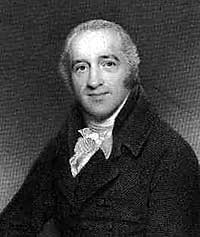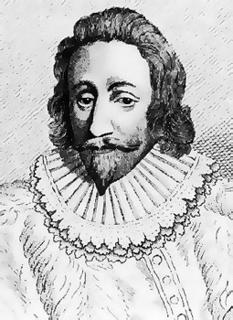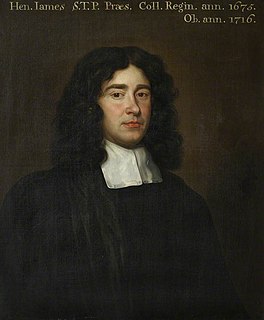Related Research Articles

Robert Persons, later known as Robert Parsons, was an English Jesuit priest. He was a major figure in establishing the 16th-century "English Mission" of the Society of Jesus.

Charles Simeon was an English evangelical Anglican cleric.

Cuthbert Tunstall was an English Scholastic, church leader, diplomat, administrator and royal adviser. He served as Prince-Bishop of Durham during the reigns of Henry VIII, Edward VI, Mary I and Elizabeth I.

Sir Francis Windebank was an English politician who was Secretary of State under Charles I.

Samuel Harsnett, born Samuel Halsnoth, was an English writer on religion and Archbishop of York from 1629.
Richard Senhouse was an English churchman, Bishop of Carlisle from 1624 to 1626.

William Alabaster was an English poet, playwright, and religious writer.
Dom Serenus Cressy, O.S.B.,, was an English convert to Catholicism and Benedictine monk, who became a noted scholar in Church history.

Sir Tobie Matthew, born in Salisbury, was an English member of parliament and courtier who converted to Roman Catholicism and became a priest. He was sent to Spain to promote the proposed Spanish Match between Charles, Prince of Wales, and the Spanish Infanta, Maria Anna of Spain, for which mission he was knighted. He left England after being accused of leading Catholics in 1641 and retired to Ghent.
William Maziere Brady (1825–1894) was an Irish priest, ecclesiastical historian and journalist who converted to Roman Catholicism from Anglicanism.

Charles Paget was a Roman Catholic conspirator, involved in the Babington Plot to assassinate Queen Elizabeth I of England.

The Caroline Divines were influential theologians and writers in the Church of England who lived during the reigns of King Charles I and, after the Restoration, King Charles II. There is no official list of Caroline-era divines; they are defined by the era in which they lived, and Caroline Divines hailed from England, Ireland, Scotland, and Wales. However, of these four nations, it is Caroline England which is most commonly considered to have fostered a golden age of Anglican scholarship and devotional writing, despite the socio-cultural upset of civil war, regicide, and military rule under Oliver Cromwell. Importantly, the term divine is restricted neither to canonised saints nor to Anglican figures, but is used of many writers and thinkers in the wider Christian church.
Ambrose Lisle March Phillipps de Lisle was a British Roman Catholic convert. He founded Mount St Bernard Abbey, a Trappist abbey in Leicestershire, and worked for the reconversion or reconciliation of Britain to Catholicism.
John Brande Morris, known to friends as Jack Morris was an English Anglican theologian, later a Roman Catholic priest. He was a noted academic eccentric, but an important scholar of Syriac.
Matthew Sutcliffe was an English clergyman, academic and lawyer. He became Dean of Exeter, and wrote extensively on religious matters as a controversialist. He served as chaplain to His Majesty King James I of England. He was the founder of Chelsea College, a royal centre for the writing of theological literature that was closed at the behest of Charles I. He also played a part in the early settlement of New England as an investor.
Benjamin Carier (1566–1614) was an English clergyman, a fellow of Chelsea College who was a well-publicised convert to Catholicism.
Thomas Lewis O'Beirne, was an Anglican bishop, Bishop of Ossory from 1795 to 1798 when he was translated to Meath.
John Seton D.D. was an English Roman Catholic priest, known as the author of a standard logic text.
Thomas Ram was an Anglican priest in the early seventeenth century.

Henry James was an English clergyman and academic at the University of Cambridge, who served as President of Queens' College, Cambridge 1675–1717 and Regius Professor of Divinity 1699–1717.
References
- 1 2 3 4 Mullett, Michael (2004). "Vane , Thomas (b. 1599/1600)" . Oxford Dictionary of National Biography (online ed.). Oxford University Press. doi:10.1093/ref:odnb/28087 . Retrieved 10 April 2008.(Subscription or UK public library membership required.)
- ↑ "Fane, Thomas (FN618T)". A Cambridge Alumni Database. University of Cambridge.
![]() This article incorporates text from a publication now in the public domain : Herbermann, Charles, ed. (1913). "Thomas Vane". Catholic Encyclopedia . New York: Robert Appleton Company.
This article incorporates text from a publication now in the public domain : Herbermann, Charles, ed. (1913). "Thomas Vane". Catholic Encyclopedia . New York: Robert Appleton Company.